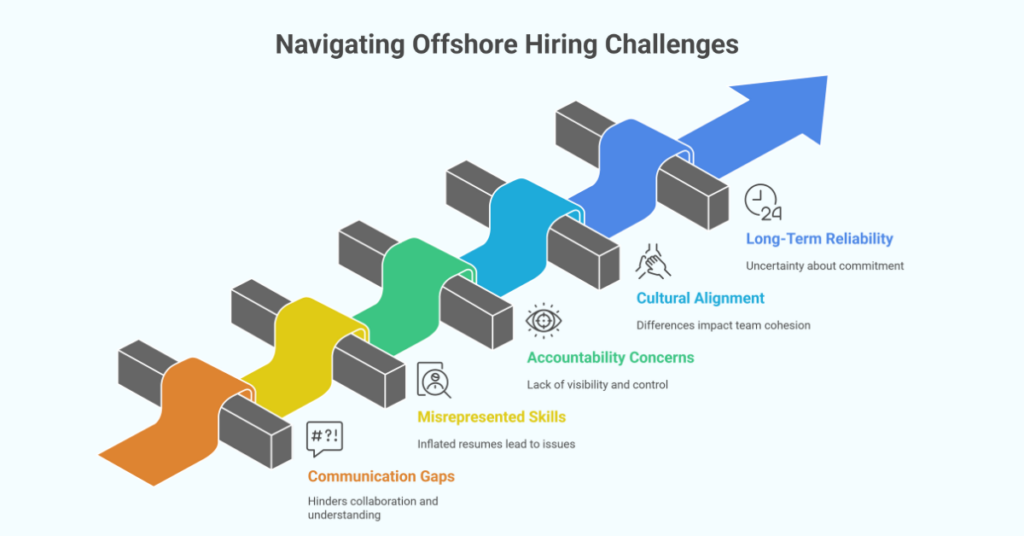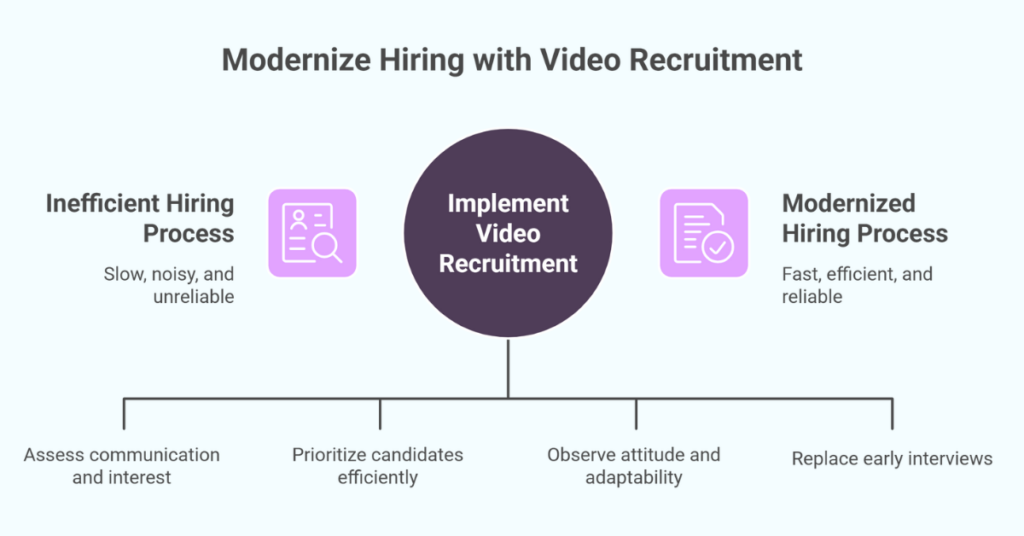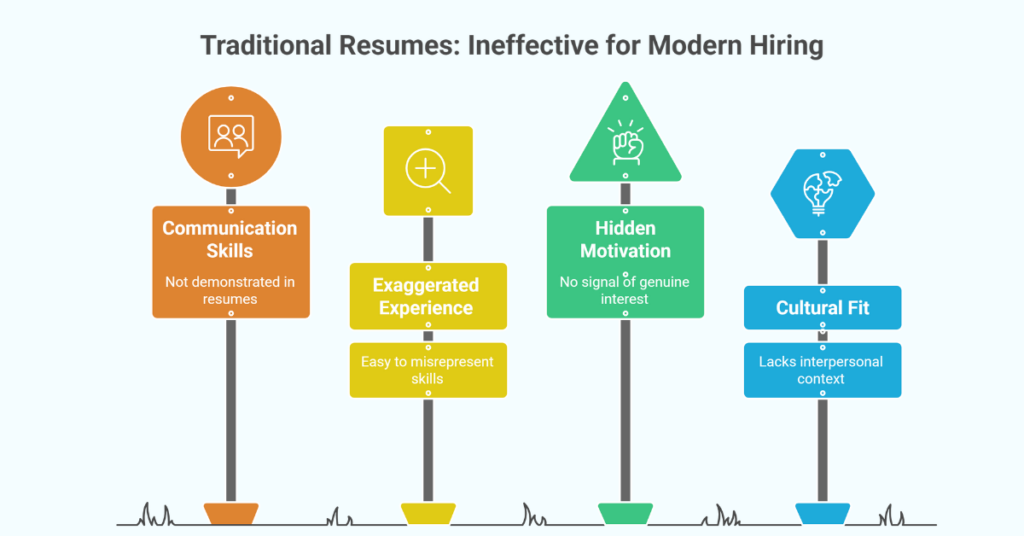Hiring Remotely opens doors to global talent and efficiency. At Remote Recruit, we help employers overcome the common challenges of remote hiring and build high-performing global teams with confidence.
Hiring Remotely has become an essential part of how modern companies grow, but it is not without its challenges. Many organizations fail at remote hiring because they try to apply traditional, in-person methods to a global and virtual environment. Existing job platforms were designed for local recruitment, not for managing and vetting candidates across multiple time zones and cultures. As a result, collaboration issues, communication gaps, and trust barriers often arise. However, when approached with the right systems and mindset, hiring remotely can unlock incredible advantages such as cost savings, diversity, and access to a larger talent pool. The key is to move away from outdated hiring structures and embrace tools, processes, and technology that are built specifically for remote recruitment.
The Reality: Remote Hiring Often Fails
Many companies struggle with hiring remotely because their existing recruitment systems were never designed for it. Traditional hiring platforms still function as though every candidate will eventually work in an office. This makes it difficult to properly assess, communicate with, and manage remote employees.
1. Existing platforms aren’t optimized for remote recruitment
Conventional job boards and systems lack features that evaluate remote work capabilities. They don’t assess how well a candidate can collaborate digitally, manage time independently, or communicate across cultures. As a result, companies end up hiring based on experience rather than compatibility with remote work dynamics.
2. Collaboration and communication issues
Remote teams often face misunderstandings due to limited real-time interaction. Without clear communication tools and defined workflows, projects can easily get delayed. Time zone differences, unclear expectations, and lack of feedback loops can create frustration among team members. For remote hiring to succeed, companies must ensure strong digital communication structures and accountability systems are in place.
Mindset Shift: Hiring Remotely Isn’t Hiring In-Person
Hiring remotely requires a complete shift in mindset. You cannot apply the same office-based management style to a distributed workforce. Companies that expect remote employees to adapt to traditional systems are likely to fail. Remote work operates on trust, structure, and measurable outcomes rather than physical presence.
Employers need to create remote-first systems that enable transparency, collaboration, and flexibility. This includes setting clear goals, using communication tools effectively, and focusing on output instead of working hours. Building a successful remote culture starts with leadership that values results and trust over proximity and control.
The Benefits Still Outweigh the Challenges
Despite the challenges, hiring remotely offers clear advantages that can transform how companies operate. Organizations that get it right not only save costs but also gain access to the best talent globally.
1. Larger talent pool across the globe
By hiring remotely, companies can recruit from anywhere in the world instead of limiting themselves to a local talent pool. This expands opportunities to find highly skilled individuals who might not be accessible otherwise. It also encourages diversity in thought, culture, and experience, which strengthens creativity and innovation.
2. Lower labor costs and greater flexibility
Hiring globally allows companies to tap into regions with lower costs of living without compromising on skill or quality. This approach isn’t about exploiting labor; it’s about providing equal opportunity to skilled professionals worldwide. It also gives businesses the flexibility to scale up or down quickly depending on project needs, without the overhead expenses of physical offices or on-site staff.
Overcoming the Fear of Remote Management
One of the biggest barriers to successful remote hiring is the fear of managing teams you can’t see. Many employers worry about accountability, data privacy, and security. However, these challenges are entirely manageable with the right tools and systems.
1. Accountability through systems
Performance management software and project tracking tools allow employers to measure productivity and results accurately. Clear deliverables, frequent updates, and progress reports keep everyone aligned and accountable.
2. Privacy and security management
Modern cybersecurity tools and secure collaboration platforms protect sensitive information. With proper access control and data protection measures, companies can maintain full security while working across borders. Employers must focus on training teams on data handling and using trusted digital platforms to safeguard business information.
Reimagine, Don’t Retreat
Hiring Remotely works when companies embrace it for what it truly is: a new, global way of building teams. Instead of retreating due to early challenges, businesses should reimagine how they hire, communicate, and manage talent. With AI-powered tools, video-based assessments, and structured digital workflows, hiring remotely becomes an opportunity to build a diverse and cost-effective workforce that operates efficiently across time zones. Companies that adapt to this new model not only survive but thrive in a future defined by flexibility, innovation, and global collaboration.
Remote Recruit Solutions
Remote Recruit helps employers and job seekers navigate the realities of hiring remotely through advanced technology and human insight. For employers, our AI-powered recruitment tools identify top candidates by assessing not just skills but also communication ability, motivation, and fit for remote work. We integrate video-based applications and intelligent screening to ensure transparency and eliminate bias in the hiring process. For job seekers, Remote Recruit provides access to global job opportunities with verified employers, allowing them to showcase their personalities and skills through video introductions. Our secure platform simplifies international hiring, ensures authenticity, and reduces the risk of mismatched placements. Whether you are a company looking to scale globally or a professional seeking international opportunities, Remote Recruit bridges the gap between talent and opportunity in the remote work era.
Conclusion
Hiring Remotely is not just a trend; it is a long-term shift in how businesses operate and grow. While many companies initially struggle, the key lies in adapting the right mindset and systems built for remote work. The advantages of global talent access, cost efficiency, and flexibility far outweigh the initial challenges. By addressing communication barriers, embracing accountability tools, and focusing on cultural fit, companies can create thriving global teams. Remote Recruit enables organizations and professionals to succeed in this evolving landscape by combining technology and human understanding to make remote hiring simple, secure, and scalable.
Sign up today to start Hiring Remotely with confidence at Remote Recruit.




